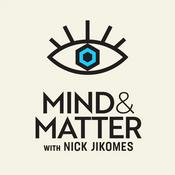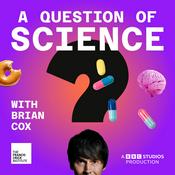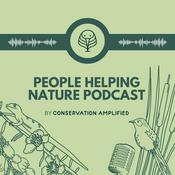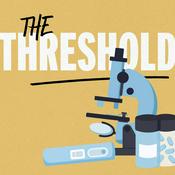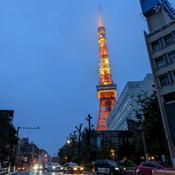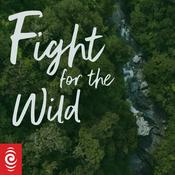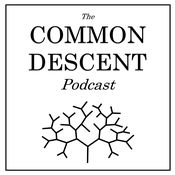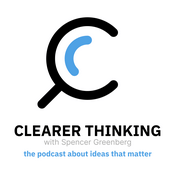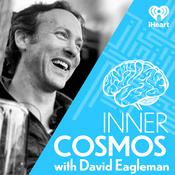7 episodes

Bonus: Blue Zones Revisited Revisited
29/12/2024 | 1h 44 mins.
After visiting Blue Zones all over the world, today, we're visiting our home country, Australia. Not because Australia has been declared a secret seventh Blue Zone, but because, months after the first six episodes of this podcast dropped, an Australian researcher, Saul J. Newman, has been awarded an Ig Nobel Prize... for debunking the Blue Zones phenomenon. In this bonus episode of Blue Zones: Revisited, we dissect Newman's award-winning paper, and the Blue Zones team's response to it. Further Reading: The 34th First Annual Ig Nobel Prize Ceremony Newman's acceptance speech UCL demographer's work debunking 'Blue Zone' regions Dr. Newman has uncovered the 'secret' of living to 110 (ANU) Scientist snares Ig Noble gong for work debunking 'Blue Zones' (RNZ) Ig Nobel Prizewinner Debunks Supposed 'Blue Zones' (IFL) Oxford don wins Ig Nobel Prize for debunking ageing research Supercentenarian and remarkable age records exhibit patterns indicative of clerical errors and pension fraud (the paper) Living beyond age 105: When the improbable becomes reality The Science Behind Blue Zones: Demographers Debunk the Critics (the response) End government support for pro-alcohol research Ig Nobel nominations

Singapore: Ban guns, save lives.
12/2/2024 | 2h 3 mins.
Singapore is Live to 100's evidence that a Blue Zones approach can work in a modern city-state. But just how well does Singapore meet the Blue Zones definition - and, after exploring six different 'Blue Zones', three of which do not contain higher-than-average concentrations of centenarians, one of which was based on faulty data, and one of which isn't even a geographical zone, what does this phrase even mean? Furthermore, how well can these lessons be applied to completely different countries, cultures, and climates? In this final episode of Blue Zones: Revisited, we examine the final evolution in the Blue Zones project: what started out as a humble research project conducted by an academic, then morphed into a worldwide phenomenon after being picked up by a National Geographic journalist, has reached its final, tradedmarked form with the corporate sponsorship of giant insurance companies. We search for the actual data on this great experiment, question just how likely it is that the entire US could become a 'Blue Zone' (whatever that now means) within 10 years, and reflect on what lessons we can actually take away from the Blue Zones book and series. Thank you for listening to Blue Zones: Revisted. We hope you've learned something - most especially, not to worry too much! Further Reading: Life expectancy in the 1950s worldwide Singapore's life expectancy projection List of countries by past life expectancy (with links to each country's profile discussed) US health insurance costs Drug use in Singapore Making the Blue Zones Neuroliberalism and Beyond A Commentary on Blue Zones Cedar Falls Blue Zone Project Blue Cross Blue Shield

Nicoya: Be poor, live more.
04/2/2024 | 1h 43 mins.
Nicoya, Costa Rica is, according to Dan Buettner, home to the 'most extraordinary centenarians on the planet'. One which, for many years, he contends, went unnoticed because researchers couldn't believe the residents of 'such a poor country' could possibly live past 80, let alone 100. In this very special episode of Blue Zones: Revisited (recorded live in Costa Rica!) we question exactly how 'poor' the 'Rich Coast' country really is, whether or not it's better to have a plan de vida or a pura vida, and whether pork lard and eggs constitute a 'plant-based diet'. Further Reading: Telomeres in Costa Rica Stanford article on longevity in Costa Rica American insurers and medical tourism Fact check: does corn on the cob provide enough protein? 20 foods high in vitamin C The 2010 draft of the WHO calcium article Dr. Steven Lin's TedX talk about dental health Gallup analysis of religiosity and poverty National Geographic fruit infographic US fruit consumption statistics The Economist's Big Mac Index

Ikaria: Start dancing, beat death.
28/1/2024 | 2h 2 mins.
Ikaria, Greece might not have gotten a big feature in the first edition of the Blue Zones book, but it certainly made a splash in the second edition - and the Live to 100 Netflix series. After all, who doesn't associate the beautiful blue Mediterranean sea and sky with a healthy lifestyle? In this fourth episode of Blue Zones: Revisited, we uncover where the idea that the Mediterranean diet is the ideal diet came from, just how closely actual Mediterranean residents' diets resemble those popularised in books like Blue Zones, and contrast the frequently communistic tendencies of some of the world's oldest communities with the capitalistic forces behind most of the food and health recommendations we hear. Further Reading: Meat consumption in Greece Alzheimers and Blue Zones Greek panegyri Lifestyle of those >90 in Ikaria Health of those >90 in Ikaria Greek communist election results Okinawan communist election results Communism in Japan Communism in California Communism in Adventism The concept of 'privacy' in Ancient Greek philosophy

California: Get faith, become immortal.
21/1/2024 | 1h 57 mins.
Loma Linda, California is the long-awaited American Blue Zone... or is it? Not only does it turn out to be not so 'blue' (we don't see a single centenarian), but it's not even really a 'zone' - at least in a geographical sense. In this third episode of Blue Zones: Revisited, we discover just how much the definition of a 'blue zone' had to be stretched in order to find one in the US, uncover some conflicting advice about meat, wine, and spirituality, and take a little excursion filled with yoghurt enemas... and even more disturbingly... eugenics. Further Reading: The Californian Blue Zone Financial advice from Loma Linda residents The long-term effects of depression Worldwide meat consumption The effects of a vegan diet The Adventist Health Study Drinking red wine for your heart? Foods containing resveratrol How to Live Forever documentary
More Science podcasts
Trending Science podcasts
About Blue Zones: Revisited
Listen to Blue Zones: Revisited, Radiolab and many other podcasts from around the world with the radio.net app

Get the free radio.net app
- Stations and podcasts to bookmark
- Stream via Wi-Fi or Bluetooth
- Supports Carplay & Android Auto
- Many other app features
Get the free radio.net app
- Stations and podcasts to bookmark
- Stream via Wi-Fi or Bluetooth
- Supports Carplay & Android Auto
- Many other app features


Blue Zones: Revisited
download the app,
start listening.











